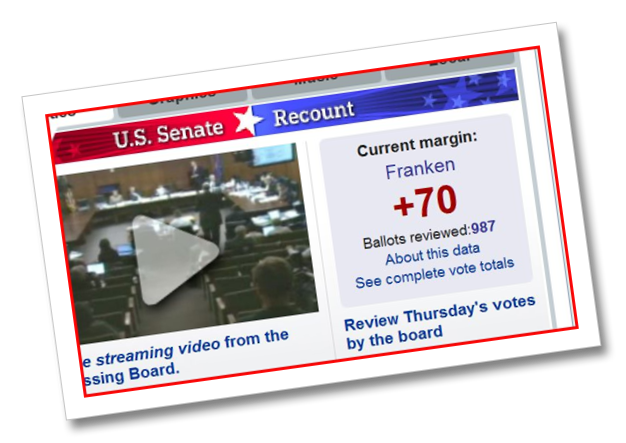You know how Spot says sometimes the posts just write themselves, grasshopper?
Yup, you do say that Spotty.
Well, this is not one of them. But it's a very important subject, and Spot hopes the boys and girls will stick with it.
* * *
It has been fascinating to Spot to watch the reactions to the bailouts of the financial services industry vs. the proposed bailout of the Big Three automakers. It's a sign of the times, really, and Spot thinks it is proof that we need to rethink some priorities. There has been some vociferous opposition to both, but seemingly much more so to the auto industry bailout. Why?
After some hemming and hawing in Congress, a $700 billion rescue package was hammered out for the financial services industry. It gave Treasury Secretary Henry Paulson wide latitude and authority to take toxic assets off the hands of banks and others and to "inject" capital into financial institutions. That's a great verb under the circumstances, isn't it, boys and girls? The fed has been busy "injecting liquidity" into the system, too.
While Secretary Paulson has gotten his financial Super Soaker out and squirted away to the tune of almost half of the $700 billion, the public has gotten little in return by way of promises to do what is needed: loan the money out and unfreeze the credit markets. And nothing has happened with respect to regulating financial markets, especially the so-called "shadow banking system" that was responsible for some much of the mortgage troubles.
Contrast this with the proposed auto industry bailout. Jeepers, these guys can't get a Good luck; Godspeed! out of Congress. The current offering is $15 billion, which the industry was already going to get for fuel economy initiatives:
WASHINGTON – Congressional Democrats sent the White House an emergency $15 billion auto bailout plan Monday, complete with provision of a "car czar" to oversee the industry's reinvention of itself. The Bush administration said there had been progress toward agreement but pressed further negotiations into the night.
The measure would rush bridge loans to Detroit's struggling Big Three but would also demand that the auto industry restructure itself in order to survive and would put an overseer chosen by President George W. Bush in charge of monitoring that effort, according to the draft obtained by The Associated Press.
At first blush, White House officials suggested privately that the draft plan might fall short of principles behind a broad agreement to give long-term financing only to viable companies. But a later statement from press secretary Dana Perino sounded relatively upbeat about the rescue legislation, which congressional leaders hope to approve in the next few days.
So on the one hand, we have Henry Paulson begging the banks to use the money we "injected," and on the other we have the school marm Nancy Pelosi and other Congressional leaders proposing:
Among the requirements included the draft proposal is one that the carmakers getting federal help get rid of their corporate jets — which became a potent symbol of the industry's ineptitude when the Big Three CEOs used them for their initial trips to Washington to plead before Congress for government aid.
The proposal also would give the overseer — a kind of "car czar" — say-so over any major business decisions by the automakers while they're taking advantage of federal aid. The companies would have to open their books to the government, including informing the overseer of any transaction of $25 million or more and any "material change" in their financial condition.
Under the plan, the carmakers could get emergency loans right away. Then the overseer would write guidelines, due on the first of the year, for restructuring the Big Three automakers.
How much "liquidity" has been "injected" into just AIG so far?
About $150 billion and counting, Spotty. Ten times as much as the current proposal for the whole auto industry.
Right grasshopper. And do you know what those clowns from AIG did after the bailout was approved? They had an executive party.
Maybe draconian terms are needed for the auto industry, but you can certainly say the same thing for the financial services industry. Ironically, one of the arguments for the financial bailout was the meltdown's potential to affect the "real economy." Perhaps it hasn't dawned on Pelosi & Co. that the auto industry is part of THE REAL ECONOMY.
Guys like Kevin Phillips and Spot's DL friend techno might say that the difference in treatment can be explained by the outsized influence of Finance Capitalism vs. Industrial Capitalism in the United States. This is from a brilliant essay by techno:
There has been a lot of invented terminology to describe the change in fortunes of the Keynesians and the Friedmanites. But the MOST descriptive was that it marked the change from Industrial to Finance Capitalism. If River Rouge was the defining symbol of Industrial Capitalism, then the archetypical example of Finance Capitalism was Enron.
Enron embodied the major flaws of Finance Capitalism--it was only possible because of economic deregulation, it relied on a willing suspension of disbelief in all reasonable measures of prudence, it sold cotton-candy products like weather futures, and it relied on industrial sabotage to make its fantasy profit targets.
All of these maneuvers were done in public with the main movers featured prominently on the covers of the business press. Phil Gramm, who shepherded Enron’s enabling deregulation through the Senate, was a regular talking head on the television news shows because he was a true believer who preached, as a trained economist, that deregulation was necessary and virtuous. This was not some sort of invisible conspiracy, this was a seizure of the intellectual high ground.
But, scream the apologists for Finance Capitalism, we are not industrial saboteurs, vandals, and rip-off artists. We are SCIENTISTS and one of our members has been rewarded with a Nobel since 1968.
And sure enough, the defenders of Finance Capitalism have erected an awesome intellectual apparatus to justify their crazy ideas and when all else fails, they point to rising numbers at their Meccas--the trading pits of the various stock exchanges world-wide.
They don't point to rising numbers much any more, do they boys and girls?
This post has passed the magic 1,000 word mark, so Spot will end here for now. But consider: is a prosperous post-industrial America even possible, an America where we just sell each other pieces of paper representing hedges, bets, hunches, and blue sky?


 Spot almost forgot to tell you, boys and girls! We had a successful Toys for Tots drive at the Holiday Party last Thursday. We collected a big sack of toys, so big that Santa was grumbling all the way out to the car. Included were some footballs, basketballs and other things that older kids will enjoy, too.
Spot almost forgot to tell you, boys and girls! We had a successful Toys for Tots drive at the Holiday Party last Thursday. We collected a big sack of toys, so big that Santa was grumbling all the way out to the car. Included were some footballs, basketballs and other things that older kids will enjoy, too. We will NOT convene at the 331 Club tomorrow night for Drinking Liberally. There may be a meeting on the night of New Year's Day, January 1st. Stay tuned for details about that.
We will NOT convene at the 331 Club tomorrow night for Drinking Liberally. There may be a meeting on the night of New Year's Day, January 1st. Stay tuned for details about that. r
r
 -t)
-t) 


 No, you don't have to audition to come to Drinking Liberally - Minneapolis. But tomorrow night - December 11th - we will be choosing our Santa for the Christmas party next week. Come on in and apply, or just be a member of the jury.
No, you don't have to audition to come to Drinking Liberally - Minneapolis. But tomorrow night - December 11th - we will be choosing our Santa for the Christmas party next week. Come on in and apply, or just be a member of the jury. Spot has already
Spot has already